Landmark nuclear submarine deal between US, Australia, UK sends message to China
Former Defense Secretary Mark Esper praises the project and reacts to President Xi and Zelenskyy's plan to speak.
Secretary of State Antony Blinken on Tuesday will travel to Ethiopia and then Niger later in the week as the Biden administration looks to bolster relations with African partners to counter top adversaries like China and Russia from expanding ties on the continent.
The Biden administration has been working to revitalize relations with nations across Africa as one of its top geopolitical objectives and Blinken will not be the only diplomat hitting the continent this week.
Under Secretary of State for Civilian Security, Democracy, and Human Rights Uzra Zeya will travel to The Gambia and Senegal, while Lee Satterfield, Assistant Secretary of State for Educational and Cultural Affairs, will hit South Africa this week.
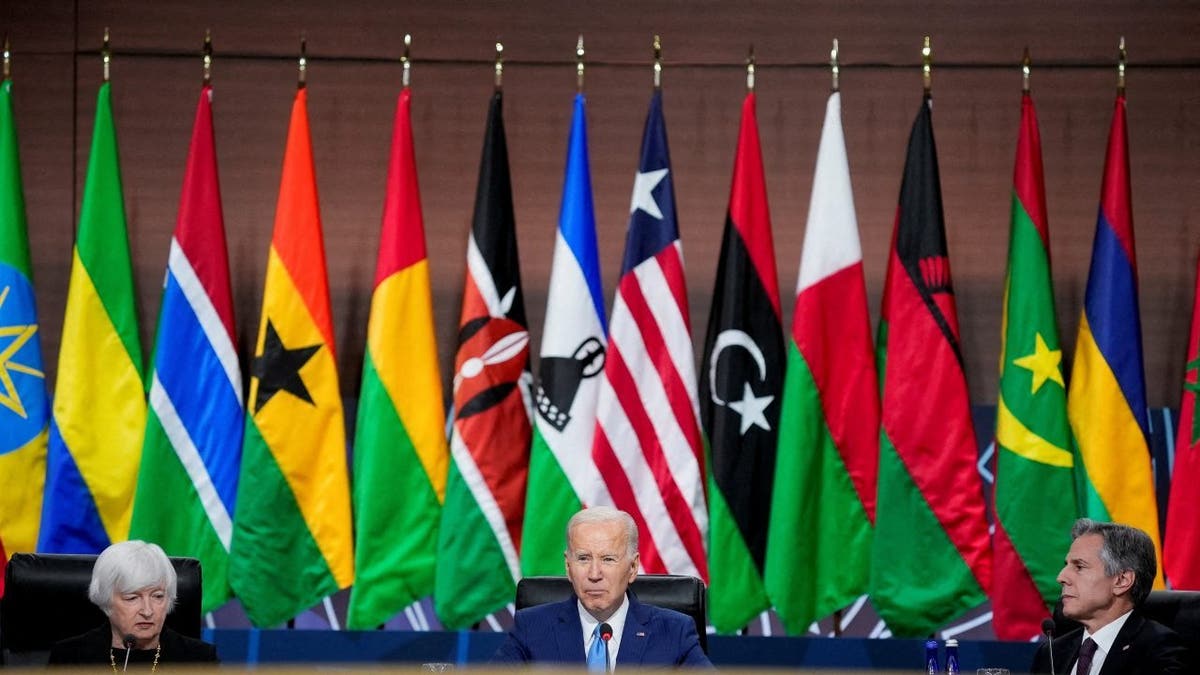
U.S. Secretary of the Treasury Janet Yellen, President Joe Biden, and Secretary of State Antony Blinken attend the U.S.-Africa Leaders Summit Closing Session on Promoting Food Security and Food Systems Resilience, at the Walter E. Washington Convention Center, in Washington, D.C., U.S. December 15, 2022. (REUTERS/Ken Cedeno/File Photo)
"You’ll be seeing this as the year of travel of U.S. officials to Africa," Assistant Secretary for African Affairs Molly Phee told reporters last week. "We’ve already seen the First Lady and the Treasury Secretary as well as Ambassador Linda Thomas-Greenfield on the continent, and I expect to see many more leaders of the administration visiting to deepen and expand our partnerships."
The trips come as news continues to immerge on both China’s and Russia’s growing ties with nations in Africa as they face increasing opposition from the West.
A report released earlier this month showed that not only are China and Russia expending more when it comes to trade, infrastructure development, and natural resources across the continent, but in arms sales as well.
Together Russia and China make up nearly half of all arms sales to Sub Sahara Africa with a combined total of 46 percent of the region's arms deals over the last decade.
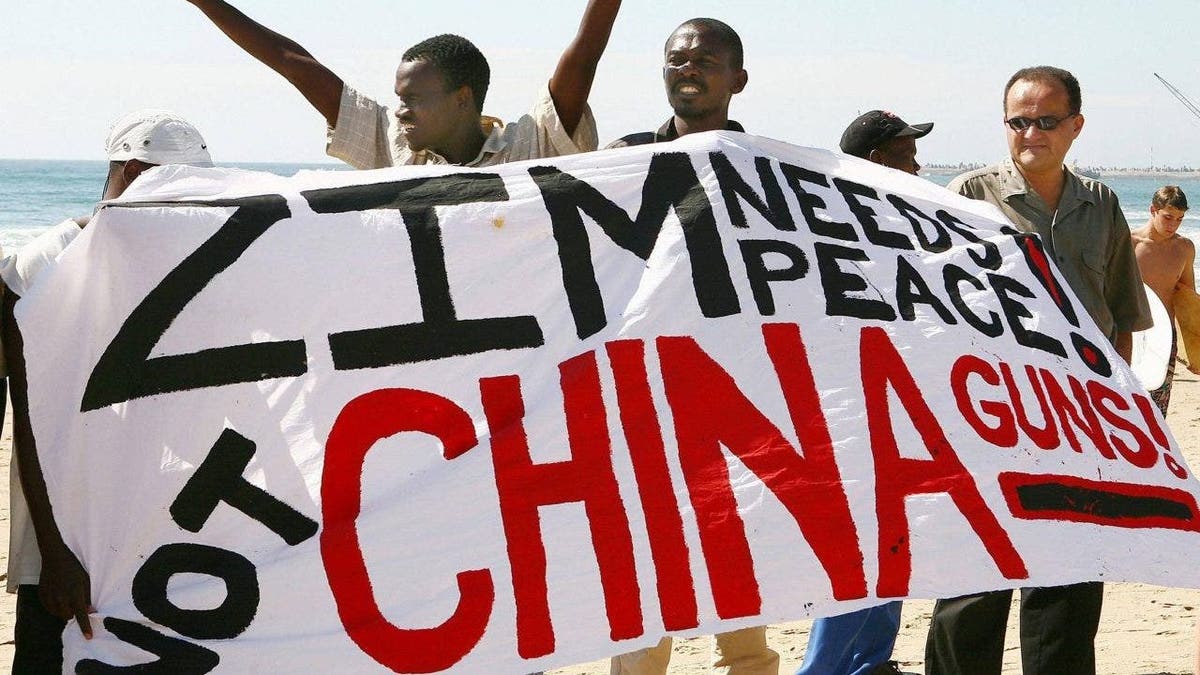
Members and supporters of the Kwazulu-Natal Christian Council and Diakonia Council of Churches on April 19, 2008 protest against the offloading of arms from China destined for poverty-stricken Zimbabwe. A ship carrying arms from China destined for Zimbabwe left South Africa on April 18, 2008 after a court barred its cargo from being transported to the border. (RAJESH JANTILAL/AFP via Getty Images)
Between 2010 and 2021, Russia contributed 24 percent to arms exports to Sub Sahara Africa, while China provided 22 percent of the region’s arms – far outstripping the U.S.’s five percent, according to data released by the Atlantic Council earlier this month.
While’s Russia has long held a reputation as a top arms dealer to the continent, largely providing light arms and ammunitions, China has more recently ramped up its involvement in the arms sector.
Throughout the entirety of the 90s, China provided roughly $220 million in arms to Sub Sahara Africa, but by the early 2000s that number began to ramp up and by 2010 they provided $205 million worth of arms to the region in that year alone.
In 2013 alone China exported $423 million worth of arms to the region – a time frame that coincided with the launch of Chinese President Xi Jinping’s Belt and Road Initiative.
Over a 10-year period beginning 2010, China would contribute more than $2 billion in arms sales to Sub Sahara Africa by 2021.
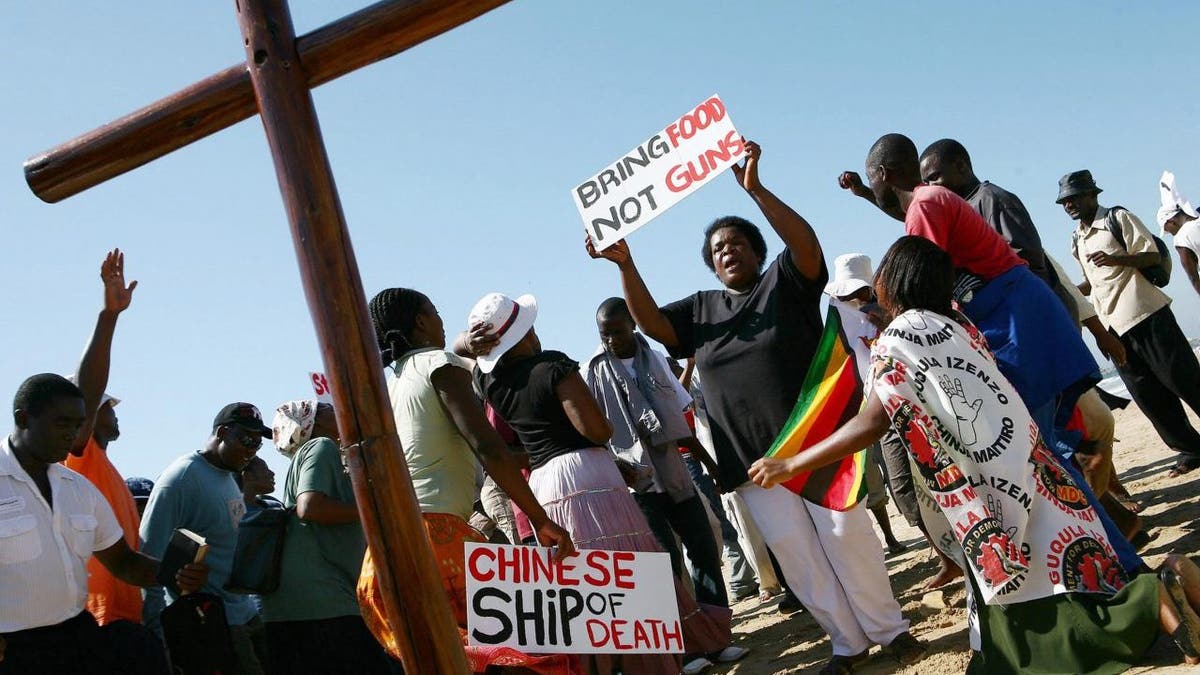
A ship carrying arms from China destined for Zimbabwe left South Africa on April 18, 2008 after a court barred its cargo from being transported to the border, the SAPA news agency reported. International sanctions imposed by Western countries against Zimbabwe include a ban on weapon sales to the country. ( RAJESH JANTILAL/AFP via Getty Images)
"It’s a lucrative business to be in. There are 54 countries which all have individual armies and they have a variety of security needs," Cameron Hudson, a senior associate in the Africa Program at the Center for Strategic & International Studies (CSIS) told Fox News Digital. "It’s a large market, it’s a growing market."
RUSSIAN WAGNER GROUP GAINS GLOBAL NOTORIETY FROM AFRICA TO UKRAINE, BUT DIVISION BREWS AT HOME
Hudson explained that more limited arms sales to countries across Africa from the U.S. and its allied nations boils down to defensive standards and democratic values the West adheres to.
"What separates these two countries from for example the U.S. or European countries is that they will actively sell into armed conflict. They will actively sell to governments that have spotty human rights records," he said. "Our arms sales to African countries are in the context of a much broader security assistance program."
Hudson explained that the U.S. tends to look at security assistance to Sub Sahara Africa in the lens of a broader security package, that often include elements outside of arms sales.
"Russia and China tend to conduct arms sales as a profit-making exercise," he added.
Hudson explained that Russia's and China’s lax attitude when it comes to who they sell arms to is concerning in the fact that it could "extend ongoing conflicts or create new tensions" – a geopolitical quagmire Russia has already been accused of propagating.
Russia’s mercenary Wagner Group has dispersed some 10,000 soldiers for hire throughout Africa where they have been accused of destabilizing governments, local elections and causing general turmoil in pursuit of Russian interests in resource-rich nations.
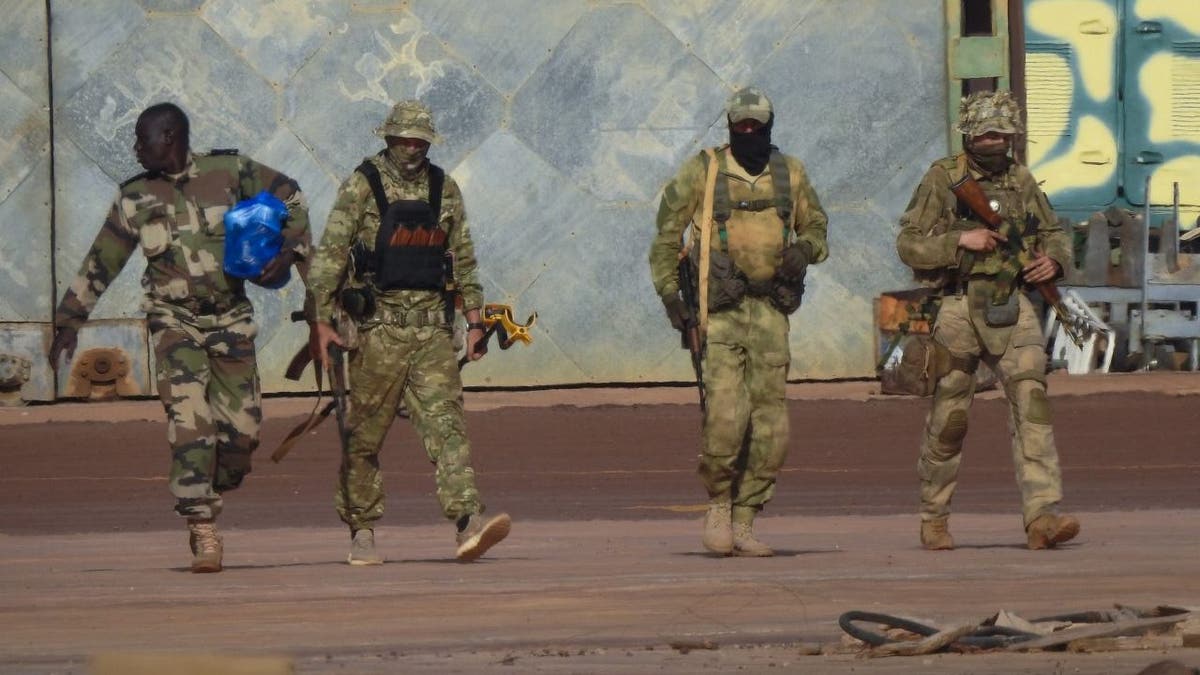
This undated photograph handed out by French military shows three Russian mercenaries, right, in northern Mali. Russia has engaged in under-the-radar military operations in at least half a dozen countries in Africa in the last five years using a shadowy mercenary force analysts say is loyal to President Vladimir Putin. (French Army via AP)
The notorious group, which the Kremlin still alleges no official connections despite known arms support from its defense ministry, have also been accused of human rights abuses and war crimes in places like Mali – an issue Blinken will likely address during his trip to Niger.
"Niger is a country that is surrounded by states that have been overthrown by military coup d’etats," Hudson explained, referring to Mali, Chad and Libya– all of which now have seen the Wagner group insert itself within their borders over the last year or so.
CLICK HERE TO DOWNLOAD THE FOX NEWS APP
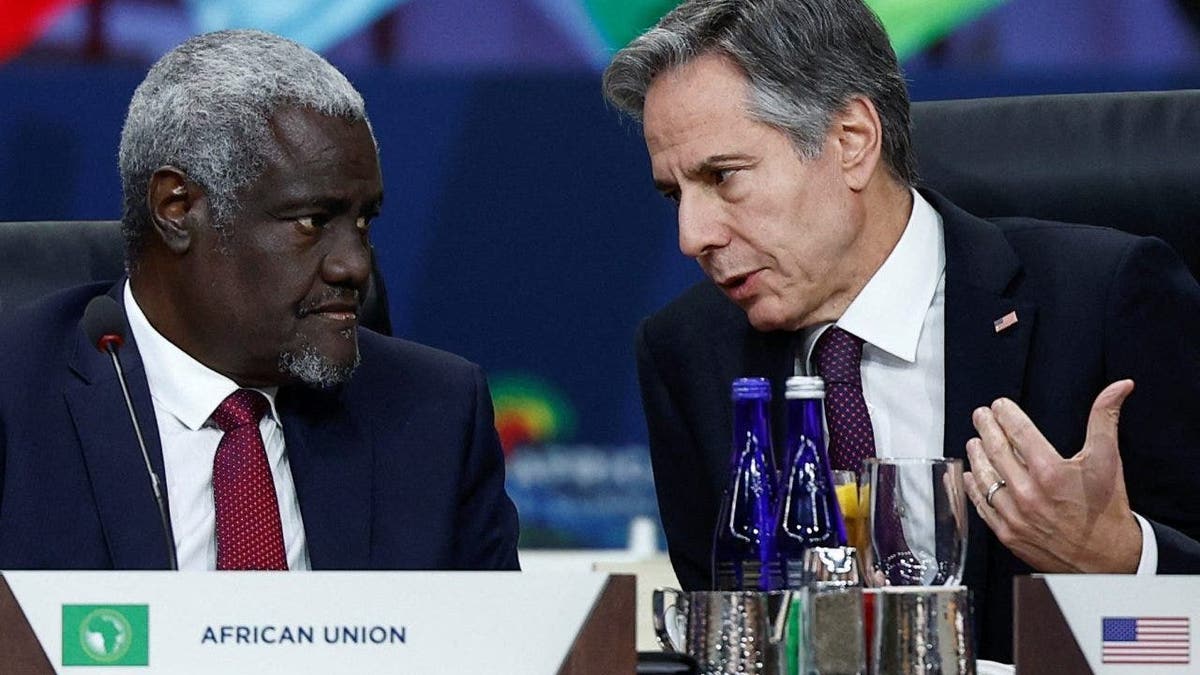
U.S. Secretary of State Antony Blinken speaks with African Union Commission (AUC) Chairperson Moussa Faki Mahamat during the working lunch on multilateral cooperation at the U.S.-Africa Leaders Summit, in Washington, U.S., December 15, 2022. REUTERS/Evelyn Hockstein (REUTERS/Evelyn Hockstein)
Though Niger remains a democracy and a partner nation to the U.S., Hudson explained it is a "very weak democracy" vulnerable to Russian aggression.
"Here is a country that is at risk of seeing its democratic light extinguished and is at risk on all sides by Russian incursion," he continued. "Blinken is going there to really help lift them up, shine a light on the democratic process and to kind of keep Russia at bay.
"I’ll be interested to see how aggressively Blinken does that when he’s there," Hudson added.


